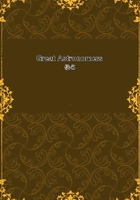
第79章 AIRY.(1)
In our sketch of the life of Flamsteed, we have referred to the circumstances under which the famous Observatory that crowns Greenwich Hill was founded. We have also had occasion to mention that among the illustrious successors of Flamsteed both Halley and Bradley are to be included. But a remarkable development of Greenwich Observatory from the modest establishment of early days took place under the direction of the distinguished astronomer whose name is at the head of this chapter. By his labours this temple of science was organised to such a degree of perfection that it has served in many respects as a model for other astronomical establishments in various parts of the world. An excellent account of Airy's career has been given by Professor H. H. Turner, in the obituary notice published by the Royal Astronomical Society. To this I am indebted for many of the particulars here to be set down concerning the life of the illustrious Astronomer Royal.
The family from which Airy took his origin came from Kentmere, in Westmoreland. His father, William Airy, belonged to a Lincolnshire branch of the same stock. His mother's maiden name was Ann Biddell, and her family resided at Playford, near Ipswich. William Airy held some small government post which necessitated an occasional change of residence to different parts of the country, and thus it was that his son, George Biddell, came to be born at Alnwick, on 27th July, 1801.
The boy's education, so far as his school life was concerned was partly conducted at Hereford and partly at Colchester. He does not, however, seem to have derived much benefit from the hours which he passed in the schoolroom. But it was delightful to him to spend his holidays on the farm at Playford, where his uncle, Arthur Biddell, showed him much kindness. The scenes of his early youth remained dear to Airy throughout his life, and in subsequent years he himself owned a house at Playford, to which it was his special delight to resort for relaxation during the course of his arduous career. In spite of the defects of his school training he seems to have manifested such remarkable abilities that his uncle decided to enter him in Cambridge University. He accordingly joined Trinity College as a sizar in 1819, and after a brilliant career in mathematical and physical science he graduated as Senior Wrangler in 1823. It may be noted as an exceptional circumstance that, notwithstanding the demands on his time in studying for his tripos, he was able, after his second term of residence, to support himself entirely by taking private pupils. In the year after he had taken his degree he was elected to a Fellowship at Trinity College.
Having thus gained an independent position, Airy immediately entered upon that career of scientific work which he prosecuted without intermission almost to the very close of his life. One of his most interesting researches in these early days is on the subject of Astigmatism, which defect he had discovered in his own eyes. His investigations led him to suggest a means of correcting this defect by using a pair of spectacles with lenses so shaped as to counteract the derangement which the astigmatic eye impressed upon the rays of light. His researches on this subject were of a very complete character, and the principles he laid down are to the present day practically employed by oculists in the treatment of this malformation.
On the 7th of December, 1826, Airy was elected to the Lucasian Professorship of Mathematics in the University of Cambridge, the chair which Newton's occupancy had rendered so illustrious. His tenure of this office only lasted for two years, when he exchanged it for the Plumian Professorship. The attraction which led him to desire this change is doubtless to be found in the circumstance that the Plumian Professorship of Astronomy carried with it at that time the appointment of director of the new astronomical observatory, the origin of which must now be described.
Those most interested in the scientific side of University life decided in 1820 that it would be proper to found an astronomical observatory at Cambridge. Donations were accordingly sought for this purpose, and upwards of 6,000 pounds were contributed by members of the University and the public. To this sum 5,000 pounds were added by a grant from the University chest, and in 1824 further sums amounting altogether to 7,115 pounds were given by the University for the same object. The regulations as to the administration of the new observatory placed it under the management of the Plumian Professor, who was to be provided with two assistants. Their duties were to consist in making meridian observations of the sun, moon, and the stars, and the observations made each year were to be printed and published. The observatory was also to be used in the educational work of the University, for it was arranged that smaller instruments were to be provided by which students could be instructed in the practical art of making astronomical observations.
The building of the Cambridge Astronomical Observatory was completed in 1824, but in 1828, when Airy entered on the discharge of his duties as Director, the establishment was still far from completion, in so far as its organisation was concerned. Airy commenced his work so energetically that in the next year after his appointment he was able to publish the first volume of "Cambridge Astronomical Observations," notwithstanding that every part of the work, from the making of observations to the revising of the proof-sheets, had to be done by himself.